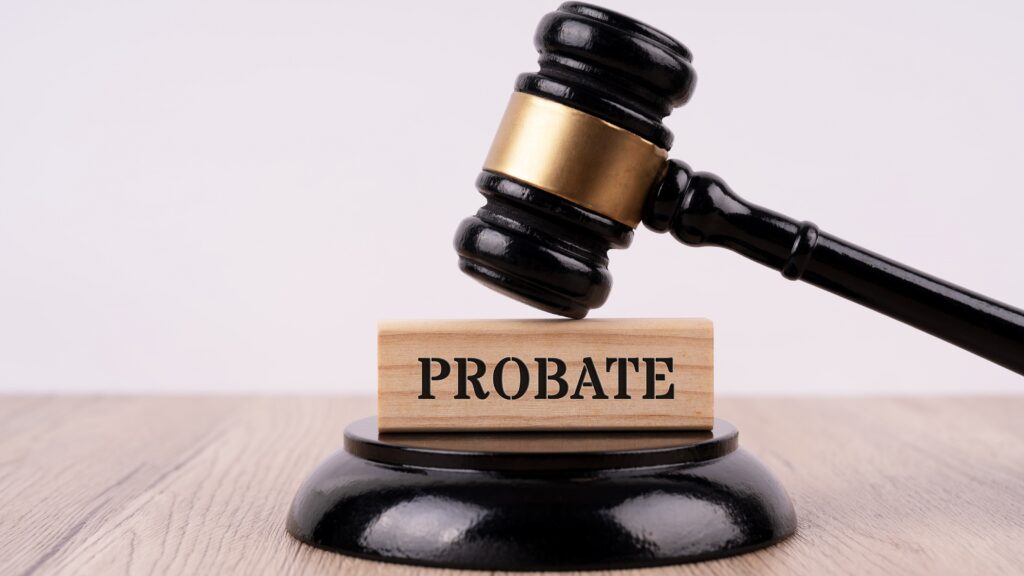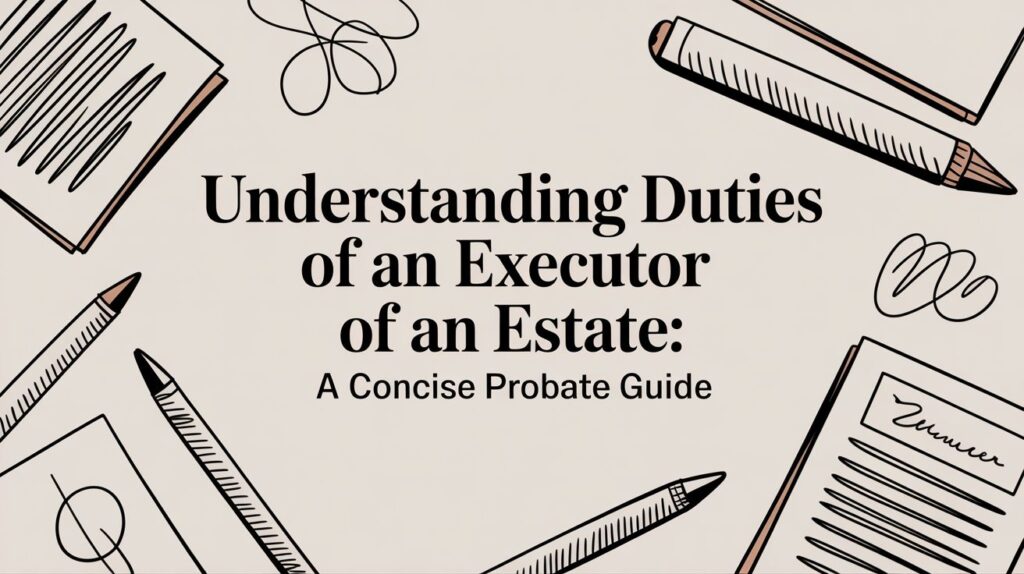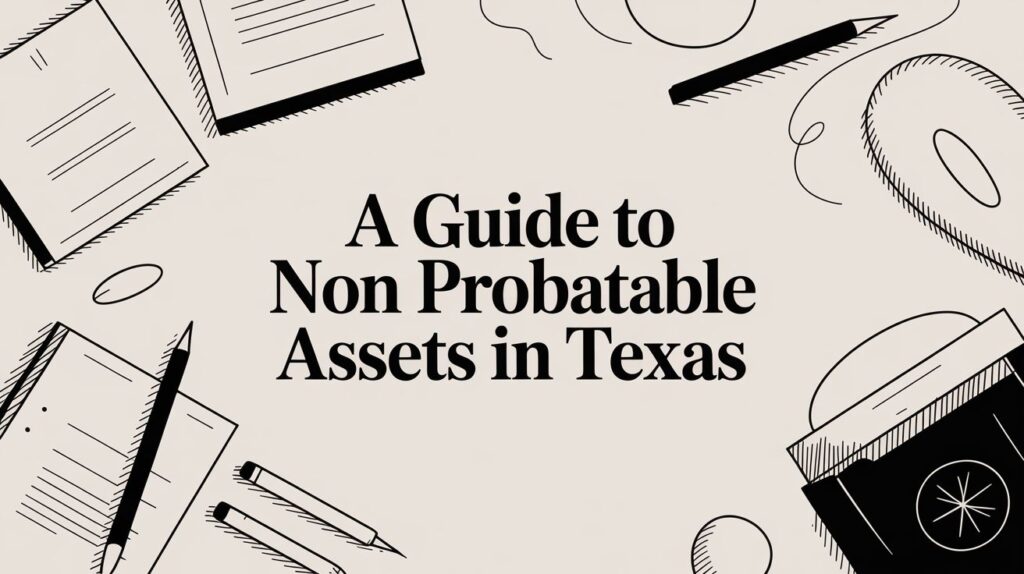If you’ve found yourself asking, “Is it necessary to probate a will in Texas?” you’re far from alone. It’s one of the most common—and often confusing—questions families face after losing a loved one. While the idea of probate may sound intimidating or unnecessary, the truth is that whether probate is required depends heavily on the unique details of the estate, the types of assets involved, and how the will was prepared. In this complete legal guide, we’ll walk through real-life examples, break down when probate is legally necessary (and when it may not be), and give you clear, practical steps to navigate the process with confidence. Understanding the rules now can prevent months—or even years—of legal headaches down the line.
Whether you’re holding a will in hand or simply trying to avoid legal missteps, this guide will help you make informed decisions without second-guessing every move. It’s written with you in mind—straightforward, clear, and packed with insights you won’t get from a legal textbook.

What Exactly Is Probate in Texas?
Before diving into whether it is necessary to probate a will in Texas, let’s clarify what probate really means.
Probate refers to the court-supervised process that follows someone’s death. During this procedure, a judge validates the will, ensures any debts get resolved, and authorizes the transfer of assets based on the deceased’s wishes. In Texas, this process ranges from straightforward to fairly complex, depending on the circumstances.
Real Example: When Probate Became a Nightmare
Maria discovered her father’s will locked in a fireproof safe after he passed away in Houston. The will clearly designated her as executor. Thinking probate was unnecessary, she chose not to open the estate in court. But when she tried to sell his house a year later, title companies blocked the transaction. Why? No legal transfer had occurred—because the will had never gone through probate.
This situation illustrates a hard truth: even a valid will might be legally useless without probate.
When Is It Necessary to Probate a Will in Texas?
The keyword here is “necessary.” While not every will requires probate, many estates do.
Situations That Typically Require Probate:
- The estate includes real estate held solely in the deceased person’s name.
- The will designates an executor and lays out specific distribution instructions.
- Certain assets—such as investment accounts or savings—lack designated beneficiaries.
- The estate has unpaid debts that must be resolved legally.
In cases like these, probate becomes the legal path for transferring ownership and settling affairs.
Situations That Might Not Require Probate:
- All assets include designated beneficiaries (such as retirement accounts or life insurance).
- Ownership of property was shared with rights of survivorship.
- The estate’s total value falls below $75,000 (excluding the homestead and exempt property).
- A simplified method like Muniment of Title may apply.
So, is it necessary to probate a will in Texas? Absolutely—especially when you need a legal process to clear titles, settle debts, or avoid future disputes.
Why You Shouldn’t Skip Probate (Even If You Think You Can)
Many families assume probate isn’t needed—particularly when a written will clearly outlines the deceased’s wishes. Unfortunately, that assumption often causes more harm than good.
What Can Happen If You Skip Probate:
- Banks and title companies may freeze assets: They usually won’t honor a will unless a court validates it.
- Heirs may disagree over property: Without probate, no one has the authority to distribute anything.
- Creditors can file lawsuits: Unpaid debts may result in court action or asset claims.
- Selling property becomes impossible: A house or land may remain in limbo until ownership is legally transferred.
Think of probate as the key that unlocks access to an estate’s contents. Without that key, doors often stay shut.

How Probate Works in Texas: A Simple Breakdown
Let’s unpack the process step by step.
Step 1: File the Will with the Probate Court
The original will must be submitted to probate courtwithin four years of the decedent’s passing. Failing to meet this deadline could disqualify you from using the will to administer the estate.
Step 2: Request Executor Appointment
The named executor in the will must request formal appointment by the court. Once granted, this person gains legal authority to act on behalf of the estate.
Step 3: Notify Heirs and Creditors
Texas law requires that all interested parties receive formal notice. This step allows creditors to make claims and beneficiaries to raise objections if needed.
Step 4: Inventory the Estate
The executor creates a full list of the estate’s assets, debts, and valuations. That inventory is filed with the court and becomes part of the official record.
Step 5: Distribute Property
After handling taxes and outstanding bills, the executor can distribute the remaining property to heirs named in the will.
What Is a Muniment of Title—and Can It Replace Probate?
If you’re still wondering is it necessary to probate a will in Texas, you’ll want to know about this Texas-specific shortcut. It’s a unique legal mechanism that helps families avoid the time and cost of full probate when certain criteria are met.
A Muniment of Title is a legal process that allows a will to transfer title to property without full probate, provided certain conditions are met. This option can be a game-changer for estates that are simple and uncontested.
How the Process Works:
Rather than opening a full probate case, you ask the court to treat the will itself as proof of property ownership. Once the court approves, the will serves as legal documentation for transferring real estate titles—especially helpful when dealing with land or homes.
Ideal Situations for Muniment of Title:
The estate holds only a home and a few straightforward assets. It works best when no complicated distributions or business interests are involved.
There are no significant debts (other than a mortgage). This is critical because the court needs assurance that creditors won’t come after the estate later.
The family agrees on distribution, and no legal challenges are anticipated. If everyone is on the same page, the process is far less likely to face delays.
No one needs formal administration to manage the estate. When all tasks are clear-cut, there’s simply no reason to appoint a full executor.
When these factors align, Muniment of Title can offer a low-cost, low-drama probate alternative. It’s especially useful for transferring property titles quickly without jumping through lengthy probate hoops.
What Happens If There’s No Will?
If no will exists, people still ask: is it necessary to probate a will in Texas—except now the question becomes, is probate required if there’s no will? And yes, it is. The court still needs to get involved to ensure the estate is properly administered.
Without a valid will, the court must appoint an administrator to settle the estate. This process may require additional paperwork and longer court supervision compared to a traditional executor-led probate.
Distribution then follows Texas intestate succession laws, which dictate how assets pass based on family relationships. These laws can surprise families—especially in blended households or estranged family situations.
Probate becomes even more crucial in these cases. The absence of a will often increases the risk of family disputes and delays in asset distribution. Legal authority through the court helps prevent confusion and keeps inheritance claims organized and enforceable.
Common Myths About Texas Probate
Let’s clear up a few widespread misconceptions. Misinformation about probate can lead to costly mistakes, so it’s important to separate fact from fiction.
Myth 1: A Will Means No Probate
False. Until a court approves the will, it has no legal effect. Simply having a will isn’t enough—it must be validated through legal channels to carry weight.
Myth 2: Families Can Divide Property Themselves
Incorrect. Without court authority, heirs have no legal right to distribute or access estate assets. Attempting to divide property informally can result in disputes or invalid transfers.
Myth 3: Small Estates Never Require Probate
Misleading. While Texas provides aSmall Estate Affidavit for certain low-value estates, it doesn’t apply to all situations—particularly if the estate includes real estate. Even small estates must meet strict qualifications to avoid probate entirely.

Myth 4: Probate Always Costs a Fortune
Exaggerated. Texas supports Independent Administration, which reduces court involvement and allows executors to manage estates efficiently. With the right planning, probate can be both affordable and streamlined.
Real-Life Story: The Cost of Avoiding Probate
James, who lived just outside of Dallas, ignored his late uncle’s will. The land his uncle left him—worth about $90,000—remained in his uncle’s name because James never probated the document. When he finally tried to sell it five years later, the deal fell apart. Title companies wouldn’t approve the sale since the property hadn’t been legally transferred.
He ended up in delayed probate, spent over $3,000 in legal fees, and had to fight off a surprise claim from a distant relative. All of it could’ve been avoided by filing probate earlier—for under $500.
Final Takeaway: Do Texas Wills Always Require Probate?
So, is it necessary to probate a will in Texas? In most instances, yes. Whether you’re handling real estate, untitled assets, or outstanding debts, probate gives your actions legal authority. Skipping it can lead to frozen assets, family conflict, or costly litigation.
Luckily, Texas offers multiple probate paths—such as Muniment of Title and Independent Administration—that streamline the process when used correctly. Acting quickly, consulting with an attorney, and avoiding assumptions will help you avoid delays and protect the estate.
If you’re holding a will and unsure what to do next, start with the probate court. It’s the only way to make that document truly count.








